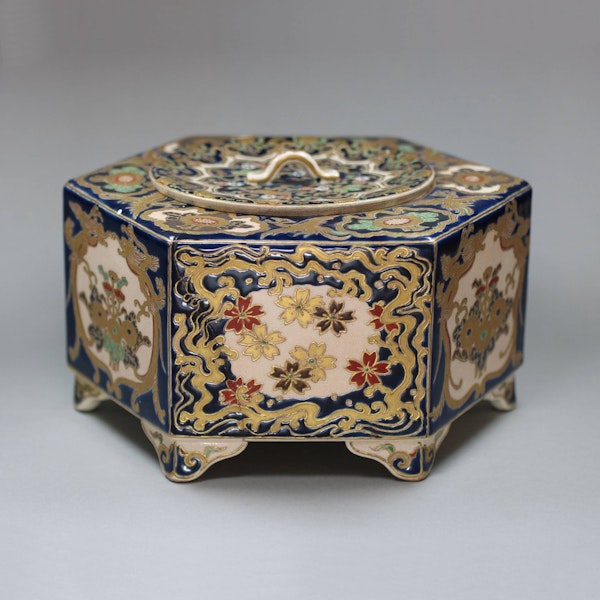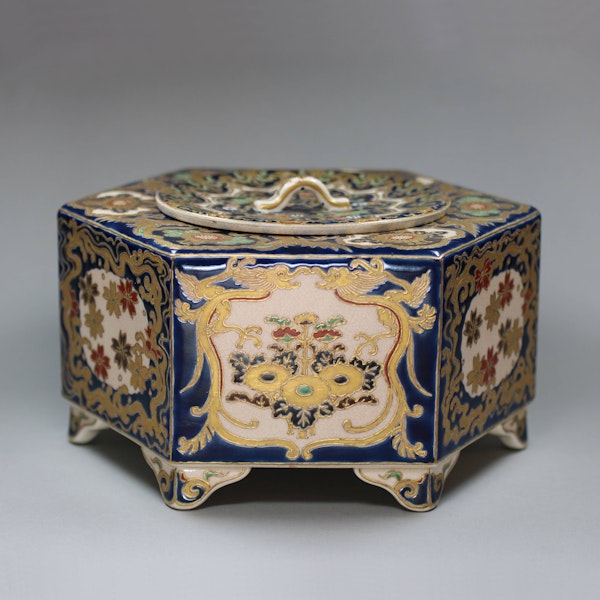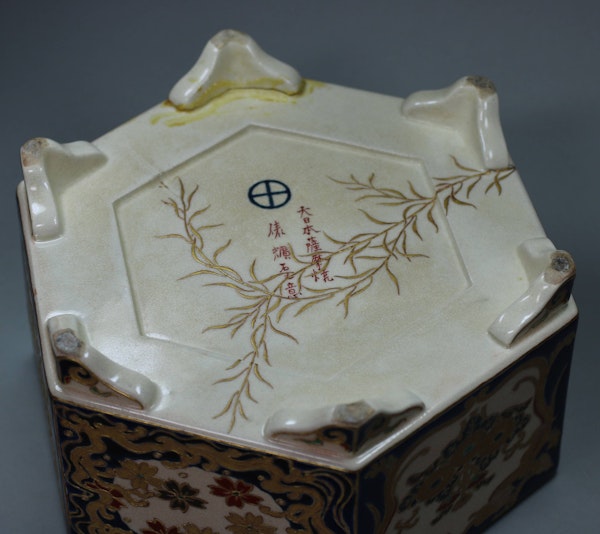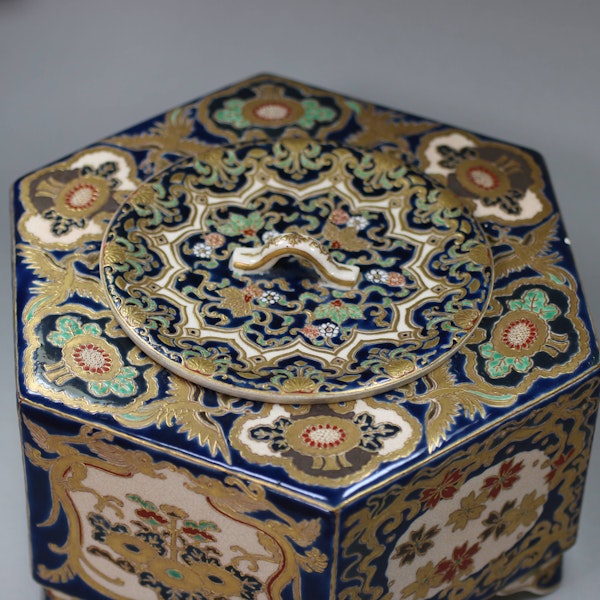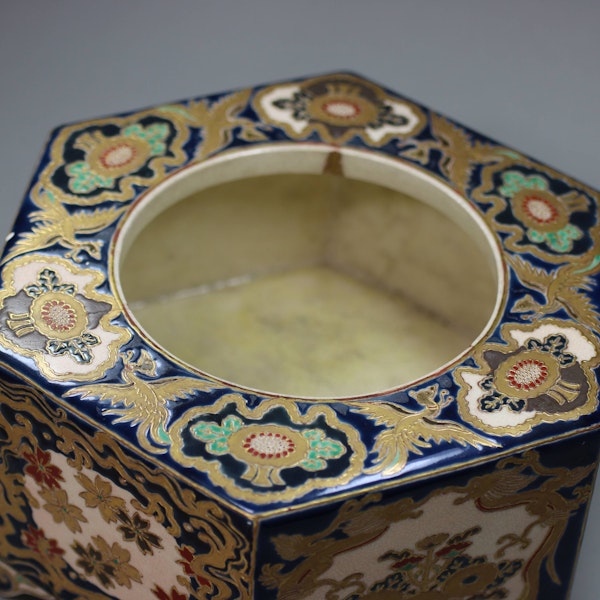Japanese hexagonal Satsuma box and cover, c. 1900
Japanese hexagonal Satsuma box and cover, c. 1900
POA
Description
Japanese hexagonal Satsuma box and cover, c. 1900, signed 'Dai Nippon Satsuma-Yaki Tawara Koseki No i' and painted by Tawara Koseki, supported on six low feet, the sides alternately decorated with scattered dianthus heads with curling gilt, or stylilsed foliate bouquets of chrysanthemum within gilt dragon border, all against a dark blue ground; the top with six ruyi-head cartouches containing further flower heads, interspersed by small ho-ho birds in flight; the lid with a flower-head shaped roundel and dense decoration comprising foliage, flowers and gilt scrollwork; the base with delicate fronds of grass spreading across signatures and the Satsuma mon seal.
Condition: Broken and re-stuck, one foot re-stuck.
Notes: Satsuma ware (薩摩焼, Satsuma-yaki) is a type of Japanese pottery originally from Satsuma Province, southern Kyūshū. Today, it can be divided into two distinct categories: the original plain dark clay early Satsuma (古薩摩, Ko-Satsuma) made in Satsuma from around 1600, and the elaborately decorated export Satsuma (京薩摩, Kyō-Satsuma) ivory-bodied pieces which began to be produced in the nineteenth century in various Japanese cities. By adapting their gilded polychromatic enamel overglaze designs to appeal to the tastes of western consumers, manufacturers of the latter made Satsuma ware one of the most recognized and profitable export products of the Meiji period.
| item details | |
|---|---|
| Material and Technique | Porcelain with overglaze enamels and gilt decoration |
| Origin | Japanese |
| Period | Early 1900s |
| Diameter | 19.7cm. (7 3/4in.) |
Product REF: Y821
